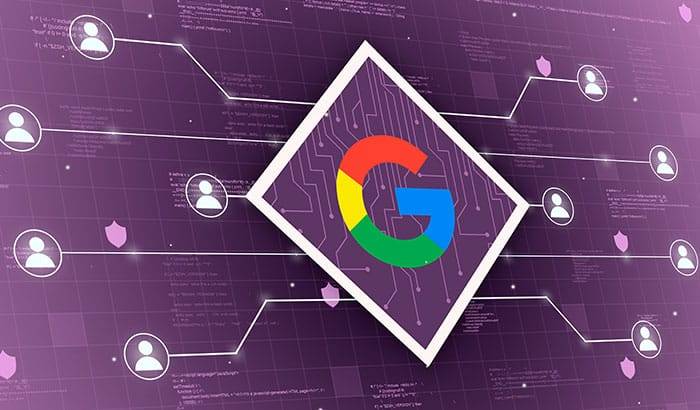Google opened advertising to small businesses in a way never seen before when they launched pay-per-click advertising (PPC). Today, small businesses can run national ad campaigns with a budget of just dollars a day.
There is so much opportunity for small businesses to expand their marketing reach. We want to help small businesses succeed with PPC. That’s why we interviewed our company’s expert on Google Ads campaigns.
Katrina got her start in digital marketing about 15 years ago. She started by doing business-to-business marketing but decided to seek out new opportunities and landed a job doing work directly for Google.
Google trained her for six months in her position. After a while, she ventured out on her own, managing Google ad accounts until she became part of our team just over a year ago. She continues doing weekly training by Google to keep herself up to date with the latest changes and trends.
Question: Can I run my own Google ads campaign as a business owner?
Answer:
Yes. I would say that it is very possible to run your own ads campaign. The system was designed to diminish a company’s need to outsource advertising to specialists and specifically for business owners wanting to manage their campaigns.
Setting it up is pretty straightforward. All you have to do is create an account and pick out some keywords. The rest follows pretty intuitively. The hard part is getting it to work for you.
It’s like making a meatloaf. You can have all the right ingredients, but when you put it together, it’s not anything like your grandmother’s recipe. What is needed is experience and expertise.
Running and optimizing the campaign is where the expertise is needed. PPC is a continually changing environment that requires constant learning. I learn something new every week because Google requires me to take additional training.
Question: How do I optimize a Google Adwords campaign, and how long will it take?
Answer:
The time it takes to optimize a Google ads campaign depends on what kind of a business it is and how many campaigns we need. It varies from business to business and industry to industry.
Optimizing is about analyzing. You need to observe what’s going on in the ad auction and the account to see what we’re missing out on. You need to see the big picture of how everything is performing.
It’s a competition. Every time someone searches, there is an auction for ad placement on that search result. There can be millions of auctions going on at any given time.
To optimize, you need to focus on a few different things:
- Improving your ad ranking.
- Improving your user experience on your landing page.
- Using the right keywords in the right way.
Question: How does Google prioritize who gets the top spot in a search?
Answer:
Google uses an ad ranking system. Every time a search is done, Google is looking for an ad and a website that meets acceptable criteria.
The first part is the keyword. The best ads use the keywords you’re targeting in the ad’s text. That same keyword also needs to be on the website. You need to have a direct line — using that keyword — from the campaign to the ad and then to the website.
Now, if all the ads have that direct line, whose website is that keyword the most relevant to?
Let’s say we have a searcher looking for glazed donuts. Now, your website has glazed donuts, and the keyword “glazed donuts” appears in your ad, but it doesn’t appear very much on your website.
My website and ads say the same thing, but I have the keyword “glazed donuts” written 20 times in different types of content. Because I’m talking about glazed donuts, and not in a redundant manner, when Google makes that comparison, it will see that glazed donuts are more relevant to my website than to yours.
In the end, Google is going to place my ad above yours.
Question: How do I make my Google Ads more successful?
Answer:
- Use Keywords — Make sure you do the work to make a direct line using the right keywords from your campaign all the way to your website.
Without consistent use of keywords at every step, your ads may not be showing up to the right people, or the right people aren’t going to trust you to have what they’re looking for.
- Website Experience — You also need to consider the experience your customer is having on your website. Is your website mobile-friendly? Are there too many pop-ups the visitor needs to click through before they get to what they’re looking for?
If your visitors have bad experiences on your website, Google is less likely to choose to feature you.
- Good Reviews — Reviews matter as well. They talk to the search engine and tell it that it has found a good product or service. It also warns the search engine if reviews are terrible.
If that’s the case, the search engine doesn’t want to show your listing or ads because it thinks your product is bad. Even if you have a good website experience, it won’t do much good if you have poor reviews.
- Allocate a Budget — Having the right budget for your industry is essential. When it comes to the auction, you don’t want to be left without enough money to get enough clicks for a conversion.
- Search Engine Optimization — And, of course, SEO matters too. You want to ensure your website is working properly, loads fast, and has content relating to your keywords.
In a way, success on Google ads depends on having good SEO.
Google considers all these things when deciding in what order to place your ad.
Question: When does the money for a Google ad leave your account?
Answer:
You pay per click. If a business wants to spend more money, its ad will show up on Google, but it won’t get charged until someone clicks on it.
Your budget limits the amount you spend. One of the big appeals of Google ads is that you have direct control over your budget. Once you set a daily limit, Google won’t exceed that.
Question: What are the best ways to run a good ad campaign?
Answer:
Table of Contents
ToggleMeasure Key Indicators
You can start by measuring some key indicators.
The top indicators we would look at are:
- Conversions.
- Cost per Conversion.
- Click through rate.
- Impressions.
- Quality Score.
- Average position.
Use these to measure the success of your campaign.
Know Your Competition
We also want to see how well the ad performs in its market. Considering how much competition you have and how much you are spending compared to your competition are necessary factors.
You can have a great website, use keywords in all the right places, and still struggle against your competitors. If they spend more money than you, they are likely to get more results from their campaign — considering they are doing all the same things you are, have a similar website, etc.
If you are competing against name brands or you are being significantly outspent in advertising, you’re likely going to have to spend a lot more to see good results.
If you are in a market with relatively low competition, you can spend 20 cents on an ad and get a conversion. On the other hand, in other industries, you may have to spend $300 to get a conversion.
In highly saturated markets, the competition is fierce. Everyone will be using the same keywords, and if they’re smart, they will be doing everything right. Even if you do everything right, there’s still an auction; you still have to fight for the same keywords.
Improve Your Credibility
When we make decisions for purchases in our personal lives, we evaluate things like how established a company is, how good its reviews are, and if it has what we are looking for.
New companies are going to make a customer feel skeptical, especially if they don’t have reviews. Begin asking for reviews as soon as possible to help your credibility.
Use Current Data and Trends
Make sure your ads are aligned with what is happening now. What is being searched today is different from what was being searched next month and will be equally different from what people will be searching for next year.
You need to base your ads and keywords on what is happening now, like what information is being sought out or what things are in demand.
Question: How often should I check on and change things in my Google ads account?
Answer:
You should be checking your accounts at least once a week to:
- Make sure none of your ads are being flagged.
- Make sure the landing page is working.
- Ensure you don’t have any other internal issues keeping your ads from being shown.
As for actually making changes, I would say between three to six weeks. This is because Google has a learning process that takes time to get used to your ads.
If I make an update on an account and then make a change a week later because I don’t feel like that keyword is performing well, the time it takes Google to learn how to use my ad resets.
You may be tempted to swap out keywords that aren’t performing, but that just resets Google’s learning process, making it harder for Google to use your ads correctly. It’s better to leave those keywords and allow the learning machine to collect and mature its data.
When you wait to make changes, you can make better decisions about your account because the data — reflecting a more extended period — is more accurate.
Question: How can I decrease the cost of keywords?
Answer:
If a keyword costs you too much, try to make it more relevant.
Start with your website. If you know that a keyword is relevant for your product or service, but it’s only on your website twice, that may be driving up the cost for your keyword because the customer doesn’t find what they’re looking for on the website.
To make a keyword more relevant, put more content on your website that uses that keyword. By creating more content using that keyword, you will make your website more relevant, improving the ad’s quality score and making a better experience for your customers.
Once you make a keyword more relevant to your website, you can expand your use of that keyword in other ads across your Google ads campaigns.
Question: What are the best practices for Google ads?
Answer:
To keep it simple, our best practices are:
- Use fewer keywords.
- Make sure the keywords are on the ads.
- Create a good website experience.
Ultimately, we strive to optimize our ads to get as many conversions as possible. If our ads aren’t getting conversions, be that a sale, a form fill, or an email sign-up, we know we need to reevaluate our process.
Our Process
Once the account has been set up, the real work begins.
The first thing you need to do is decide on keywords. Some people think they have to add every possible phrase a person could search for when they’re looking for something. One thing that I have learned about Google is that less is more.
Instead of using every keyword iteration, we pick a handful of root words relevant to our ad group. We’ll discover them through a long process of keyword research and split testing.
We’ll usually end up with a list of about 40 keywords — including long tail keywords. From there, we select 10-14 keywords we think are the best for our ad group.
After we’ve found our keywords, we’ll go through the website to make sure those keywords are relevant. This could mean updating content or creating entirely new content.
Once we know the keywords and ads we use are relevant to what’s on the website, we’ll check the landing page and the website to ensure they load fast and can give visitors a good experience.
Once we’re confident our landing page will provide a good experience, we sit back and wait to see how the ads will perform.
Question: What tools do you use for keyword research?
Answer:
We like Spyfu and Semrush. These tools allow us to analyze our competitors’ ads to see what keywords they use to drive traffic to their sites. Our logic is that if our competitors offer the same or similar products and services, the keywords they use will also work for us.
But before we jump to conclusions on using a competitor’s keyword, we compare it to what’s on our website. If we aren’t using that keyword on our site like our competitors do, we’re not going to get the same results. Our competitors are successful with that keyword because it’s on their websites.
Be careful in selecting keywords; they don’t always work for every site. You’d be surprised at how different the content on the websites of two similar companies can be.
How Revity Innovates Google Ads
According to our expert, advertising on Google is made to make managing your own ads campaign possible and straightforward. The one thing Google cannot supply you with is expertise. For that, you need to put in your own time training and researching updates.
That’s where Revity changes Google ads for your business. We are continually changing the way we approach advertising to adapt to current trends and new updates.
Google tends to change dramatically without notice. While you can probably figure out how to ride the changing world of digital marketing, it will be easier for you to lean into our expertise.
Contact Revity today to see how we can help you achieve positive results with Google ads.





